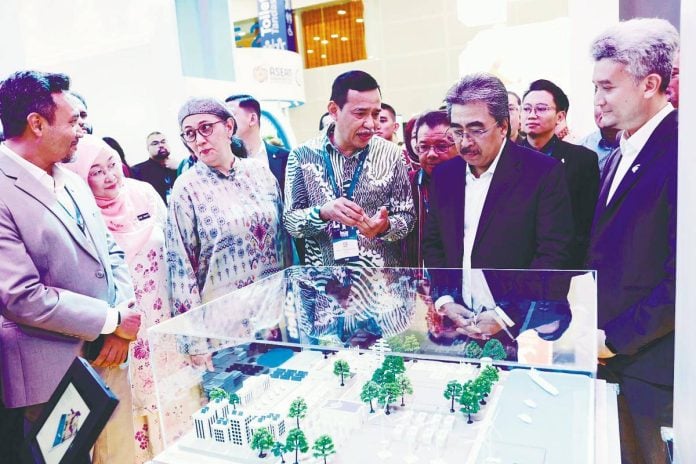KUALA LUMPUR: Bursa Malaysia can position itself as a regional leader in carbon trading if the country can strengthen reforestation and green initiatives.
Plantation and Commodities Minister Datuk Seri Johari Abdul Ghani said domestic businesses that wish to trade carbon credits or carbon allowances could leverage Bursa Malaysia as a trusted marketplace, similar to the trading of commodities such as palm oil.
“This is not merely an environmental strategy; it’s an economic one – aligning sustainability with profitability, and placing Malaysia at the forefront of the green economy,“ he told reporters at the launch of the International Greentech and Eco Products Exhibition and Conference Malaysia 2025 (IGEM 2025) today.
“Take reforestation, for instance. A RM100 million reforestation project can generate carbon credits – tradable assets that represent a verified reduction in carbon emissions.
“These credits can be exchanged for monetary value. Currently, Malaysia’s carbon credit price is about US$3 per tonne, yet the International Monetary Fund estimates the fair global price between US$50 and US$150 per tonne. This highlights a tremendous growth opportunity,“ said Johari, who is also the acting Natural Resources and Environmental Sustainability Minister.
Touching on climate change in Asean, Johari said all countries in the region must play their part in addressing this crisis.
For Asean, he added, this means demonstrating both commitment and leadership – standing together to pursue a sustainable, low-carbon future for the region and beyond.
Johari said, “As Chair of Asean in 2025, Malaysia has placed sustainability and climate action at the heart of our regional agenda as we continue to seek to be drivers of change.
“Through the Kuala Lumpur Sustainability Summit 2025, Malaysia has strengthened Asean’s climate discourse, aligning our region around three key priorities – adaptation, mitigation, and resilience.
“Through IGEM, we move from policy to opportunity, turning discussions into partnerships, and partnerships into projects. IGEM showcases technologies that will shape the next generation of industries. From clean energy and sustainable mobility to waste reduction, carbon management, and nature-based solutions,“ he said.
He also said the government is finalising the National Carbon Market Policy, which defines Malaysia’s approach to carbon trading and guides the use of carbon pricing to drive investment, innovation, and low-carbon growth.
The policy will introduce a phased framework for both compliance and
voluntary carbon markets, supported by robust measurement, reporting, and verification systems.
It will also promote carbon credit projects in forestry, renewable energy, and nature-based solutions, creating new income opportunities for state governments, local communities, and private investors, Johari said.
“Alongside this, the Carbon Capture, Utilisation and Storage Bill, passed earlier this year, positions Malaysia as a regional hub for carbon
management – a sector that could unlock up to US$250 billion in economic value over the next three decades.
“Malaysia has finalised its Third Nationally Determined Contribution (NDC 3.0) under the Paris Agreement. This ambitious yet practical target underscores Malaysia’s firm commitment to accelerating the low-carbon transition.
“NDC 3.0 was developed through consultations with state governments, industries, and civil society groups. Once approved by the Cabinet, Malaysia will submit NDC 3.0 to the UNFCCC Secretariat,“ Johari said.
These initiatives show that Malaysia’s green transition is structured, strategic, and sustained. “It is a long-term national mission built on strong policy, clear law, and enduring economic opportunity,“ Johari said.








